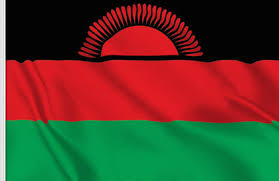
On 17 June, SALC’s intern, Nicholas Bugeja’s article titled ” In the lead-up to Malawi’s election re-run, its Government is in free fall” was published in the Independant Australia
In the latest episode of Malawi’s increasingly fraught presidential election, President Peter Mutharika’s Government attempted to remove the Chief Justice, Andrew Nyirenda, from his position on the judiciary.
On June 12, Chief Secretary to the Government Lloyd Muhara, a judge on the nation’s High Court, announced that the Government intended to place Chief Justice Nyirenda, aged 64, on leave, for he accrued more days of leave than days he had remaining as a member of the judiciary before his mandatory retirement at 65 years of age.However, Malawi’s judiciary rejected the Government’s decree, saying that it was improper for the executive government to involve itself in the ‘internal affairs of the judiciary’. This statement was backed up by the High Court’s order of an interdict – also known as an injunction – to prevent the Government from compelling the Chief Justice to take leave.
Mr Muhara’s announcement on behalf of the Government came days before Malawi’s June 23 presidential election “re-run” — pitting incumbent Peter Mutharika of the Democratic Progressive Party against the Malawi Congress Party’s candidate, Lazarus Chakwera.
In a landmark decision on 3 February this year, the Constitutional Court of Malawi invalidated the results of the 2019 presidential election in which Mr Mutharika was victorious, albeit by a small margin. The Court expressed its concern at the presence of ‘widespread, systematic and grave’ irregularities in the poll. This included the apparent use of “white-out” and typewriters to alter election ballots.
Mutharika’s Government subsequently appealed that decision to Malawi’s Supreme Court of Appeal. The Court, led by Chief Justice Nyirenda, “unanimously” affirmed the findings of the Constitutional Court, confirming the need for a new election.
This is not an unprecedented step in African political affairs. Though it is rare. In 2017, the Supreme Court of Kenya annulled the results of its previous presidential election, because it was ‘neither transparent nor verifiable’. In that “re-run”, however, Kenya’s Opposition boycotted the election, handing incumbent Uhuru Kenyatta another term in office.
There is no indication that the Malawian presidential election on June 23 will run the same doomed course.
Even prior to this ill-fated decision to remove Chief Justice Nyirenda from his position, Mutharika’s Government has been rocked by controversy and opposition. The landlocked country of 18 million has seen several nationwide demonstrations in response to what critics say is President’s Mutharika’s refusal to embrace democratic norms.
The President maintains that the May 2019 Election was “not rigged” and that protesters are agitating for a “lawless state”.Since mid-2019, the police have arrested protest organisers and activists – such as Gift Trapence and Timothy Mtambo of the Human Rights Defenders Coalition – sometimes at the direction of the President himself.
There are signs that the protests have proven effective. On 22 May, the Chair of Malawi Electoral Commission (MEC) Jane Ansah resigned, a month shy of the presidential election. The Supreme Court of Appeal found that Ansah’s MEC had performed well-below reasonable expectations in its administration of the 2019 Election. Although, Ms Ansah asserted that her resignation was not the product of public pressure.
Amid this political turbulence, it’s crucial that the June 23 presidential election – taking place during the COVID-19 pandemic – is free, fair and without error.
Such an outcome would allow Malawi to close this troubling chapter, in which government overreach has proven itself common and the judiciary has stood in the way of a breakdown in Malawi’s democratic structures.
Since achieving independence in 1964, Malawi has weathered its share of political challenges. It was a one-party state until 1993, whereupon it became a multi-party democracy. In 2002, President Bakili Muluzi tried to force through constitutional amendments, allowing him to serve three terms as president. The Parliament refused to pass it.
Then, in 2014, President Joyce Banda sought to annul the results of a presidential election which she lost to Mutharika — action which the High Court deemed unconstitutional.
Against this background, it’s clear that the magnitude of this presidential election cannot be underestimated, for it could determine the trajectory of Malawi for many years to come. So far, the constitutional order, based on the separation of powers, democratic principles and human rights has held the country together.
But it’s only managed to do that by a thread.
Nicholas Bugeja



